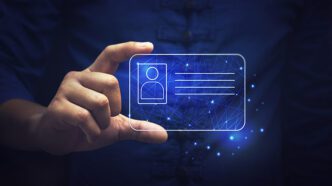In a world where artificial intelligence can now create hyper-realistic deepfake, companies harvest biometric data for profit, and athletes navigate complex name, image, and likeness (NIL) contracts, a pressing question arises—do we truly own our own faces?
For most of us, our identity feels untouchable—something deeply personal and sacred. Yet, rapid advancements in technology, paired with sluggish legal systems, are putting that belief to the test. As AI evolves, it’s becoming harder to protect what was once considered ours by default—our face, our voice, our digital selves.
While intellectual property laws, privacy regulations, and NIL agreements aim to offer some protection, they often fall short. Innovation keeps outpacing the law, leaving gaps where personal rights can be exploited. This intersection of AI, NIL, and biometric data now raises serious questions about personal property, consent, and ownership in the digital age.
It’s undeniable—deepfake technology has reached a point where AI-generated videos, images, and even voices are eerily lifelike. This breakthrough has incredible creative potential but also opens a Pandora’s box of ethical and legal concerns. If an AI creates a digital replica of you without permission, do you have the right to stop it?
The answer largely depends on where you live. Some U.S. states have started cracking down on deepfake abuse, especially in cases involving non-consensual pornography or political manipulation. California’s AB 602 law gives victims the right to sue if their likeness is used in deepfake porn without consent. Meanwhile, Virginia made the distribution of such content a criminal offense.
Still, these laws only cover specific scenarios. Broader issues of image ownership remain unresolved. Worse, when deepfakes are used for satire or parody, free speech protections often outweigh an individual’s right to their own face. Under the First Amendment, harmful content may still be legally protected if classified as commentary.
The NCAA’s landmark decision in 2021 allowing college athletes to profit from NIL deals was celebrated as a win for personal rights. Finally, athletes could earn from the brand they’d built around their name and face.
But beneath the surface, NIL deals carry their own set of risks. Young athletes—often without legal support—may sign contracts they don’t fully understand. Some agreements sneak in perpetuity clauses, permanently giving up rights to their image long after their sports career ends. Instead of gaining control, athletes could unintentionally sign their likeness away to corporations.
And there’s a growing threat no one saw coming—AI-generated NIL exploitation. If a player refuses a deal, what stops a brand from creating a deepfake version of them? Most NIL contracts don’t address unauthorized AI reproductions, leaving a dangerous loophole wide open.
Beyond deepfakes and NIL, biometric data collection adds another layer of complexity. Today, our faces are scanned at airports, our social media uploads analyzed, and facial recognition systems quietly build vast databases of our most personal features. Yet, very few of us know who owns this data—or what rights we have over it.
Some states have pushed back. Illinois passed the Biometric Information Privacy Act (BIPA), one of the strictest laws in the country. It requires companies to get clear consent before collecting or storing biometric data. Facebook’s $650 million settlement over its facial recognition practices was a wake-up call about the power—and risks—of this technology.
But federally? Protections are practically non-existent. The Fourth Amendment protects us from government intrusion but doesn’t apply to private companies. Most of the time, our consent is buried deep inside terms of service we never read, allowing corporations to collect and use our biometric data without real transparency.
The truth is, our legal systems are nowhere near ready to answer the question: Do we own our own faces? There’s an urgent need for reform.
The U.S. still lacks a nationwide standard for NIL or personal likeness rights. A federal right to publicity could finally give individuals consistent control over how their name, image, and likeness are used—not just in sports but across industries.
AI-generated likenesses also need clearer guidelines. Some argue for a total ban on unauthorized deepfakes. Others propose licensing models where people opt in or out of having their likeness used by AI. National laws modeled after BIPA could also give everyone the right to know when their biometric data is collected—and demand its deletion.
For athletes, stronger protections against exploitative NIL contracts are critical. Transparency rules, mandatory legal reviews, and limits on contract duration could prevent young players from unknowingly signing away their lifelong rights.
Balancing Protection and Innovation while dealing with Deepfake
Of course, it’s not just about slamming the brakes on technology. AI and deepfake tools also unlock incredible creative possibilities, especially in entertainment, advertising, and gaming. The challenge is finding a middle ground—protecting people’s identities while still fostering innovation.
One potential solution is compensatory licensing. If companies want to use AI to recreate someone’s likeness, they’d have to pay royalties—just like music streaming services do. This model keeps ownership intact while allowing businesses to experiment responsibly.
The future of personal identity is undeniably complex. With AI, NIL, and biometric data collection advancing rapidly, the risks of losing control over our own faces are very real. Yet, thoughtful legal reforms can prevent exploitation without stifling progress.
The ultimate goal is simple: No one should lose ownership of their face or digital identity without clear consent and fair compensation. Until then, the unsettling question remains—can we truly own our own face?













